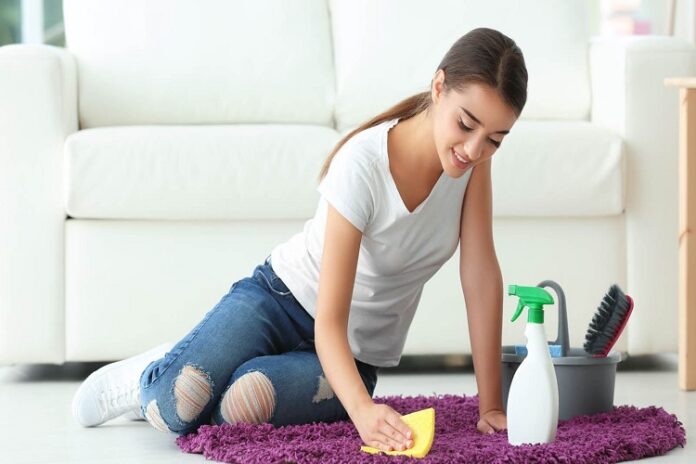Any business or individual working in the cleaning industry is likely to need some type of cleaning liability insurance, covering liability towards themselves and their employees, the public and their client.
Polished Insurance can help guide you through this process, and provide different types of insurance, such as cleaning liability insurance, that will give you full and comprehensive coverage.
Types of cleaning insurance and why they’re important
There are three main types of insurance that may apply to your business – public liability insurance, product liability insurance and employer liability insurance. This applies to any type of business you operate, whether it be window cleaning, office cleaning, domestic cleaning, contract work or simply one-off jobs.
Public liability insurance is important because it covers you or your business against compensation claims if you are deemed or held liable for injury or damage to a third party, normally whilst working at their premises.
Product liability insurance is often needed in case any of the products you use in your cleaning work cause damage to any individual or their property.
As an employer you have a number of legal obligations towards your employees, which can differ depending upon the number of people who work for you. It can also get quite complicated as it depends on the type of relationship you have with your employees, i.e. whether they are freelance, self-employed, employed or contracted.
In any event you will need some type of employer liability insurance to cover you for compensation claims arising as a result of illness or injury suffered by an employee in the course of them conducting your business.
Accidents at work
A recent report by the HSE (Health and Safety Executive) highlights the number of fatalities at work owing to accidents, and lists the industries that are most at risk, and the type of accident that is most common.
These figures in terms of fatalities can also be used to make reasonable assumptions about the likelihood of non-fatal injuries that are also likely to occur. This can give a reasonably good indication of where risk factors lie, and what can be done to minimise them.
The report shows that the most dangerous industry for fatalities relating to workplace accidents was construction, followed by agriculture, manufacturing, transport and storage and waste.
The most common type of fatality by quite a significant margin was falling from a height, followed by being struck by a moving vehicle, struck by a moving object and being trapped by something collapsing or overturning.
These types of fatality, and the industries they occur in, provide a useful, if rather grim, picture of where and how workplace accidents are most likely to happen.
Risk management
There are a number of risk factors which determine how much at risk your business is, both in terms of the likelihood of an accident at work, and your likelihood of needing to pay compensation with regard to a liability claim.
Types of work environment
What type of environment are you doing the cleaning in, both internally and externally?
Different businesses have different types of workplace and when cleaning these premises you can be exposed to a variety of risks.
For example, are you required to use any type of lifts or hoists as part of your cleaning work, or in any way are you or your employees suspended off the ground for any period of time?
Has the business you are cleaning for ever been prosecuted, or are there any prosecutions pending under any statutory regulations such as the Health and Safety at Work Act or the Consumer Protection Act. If so, what are they for?
Employees
Most types of cleaning work give the employees of your business access to areas of sensitive and delicate information. This means that you must be able to trust your employees, as you will be liable as an employer in the event of any fraud or data breach.
This can get more complicated when there are different types of employee, such as permanent and temporary staff, contract and freelance staff and subcontractors.
You should make sure that all employees have a DBS check, possibly enhanced, depending upon the nature of the environment you are working in.
You should also know if any of your employees, as defined above, have been declared bankrupt or insolvent, or have any criminal charges pending.












